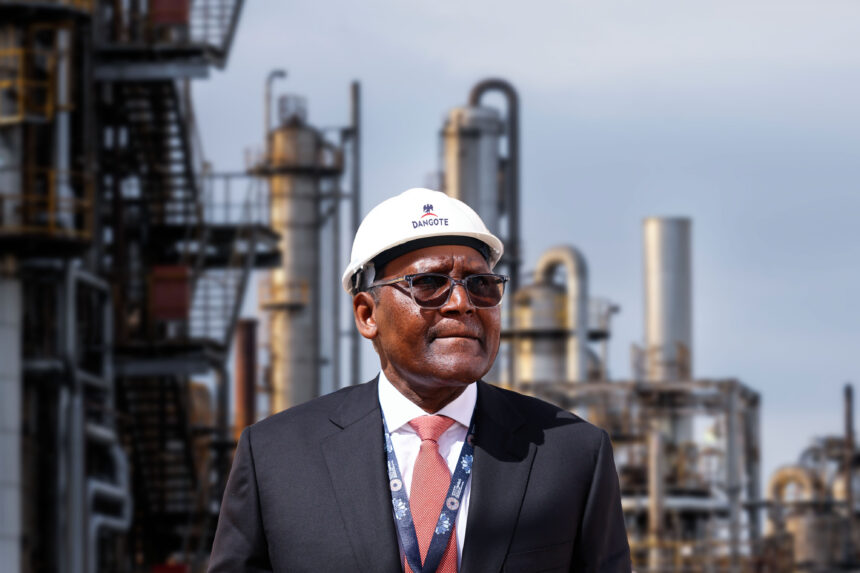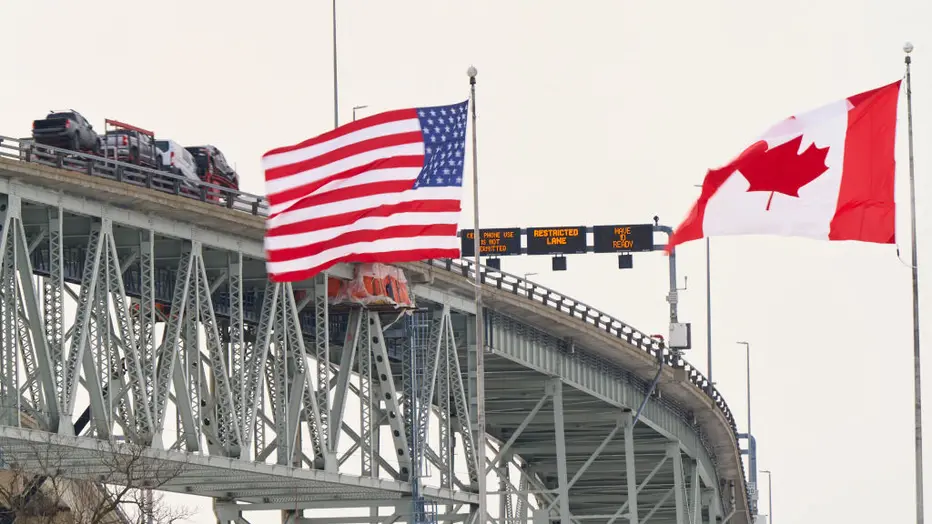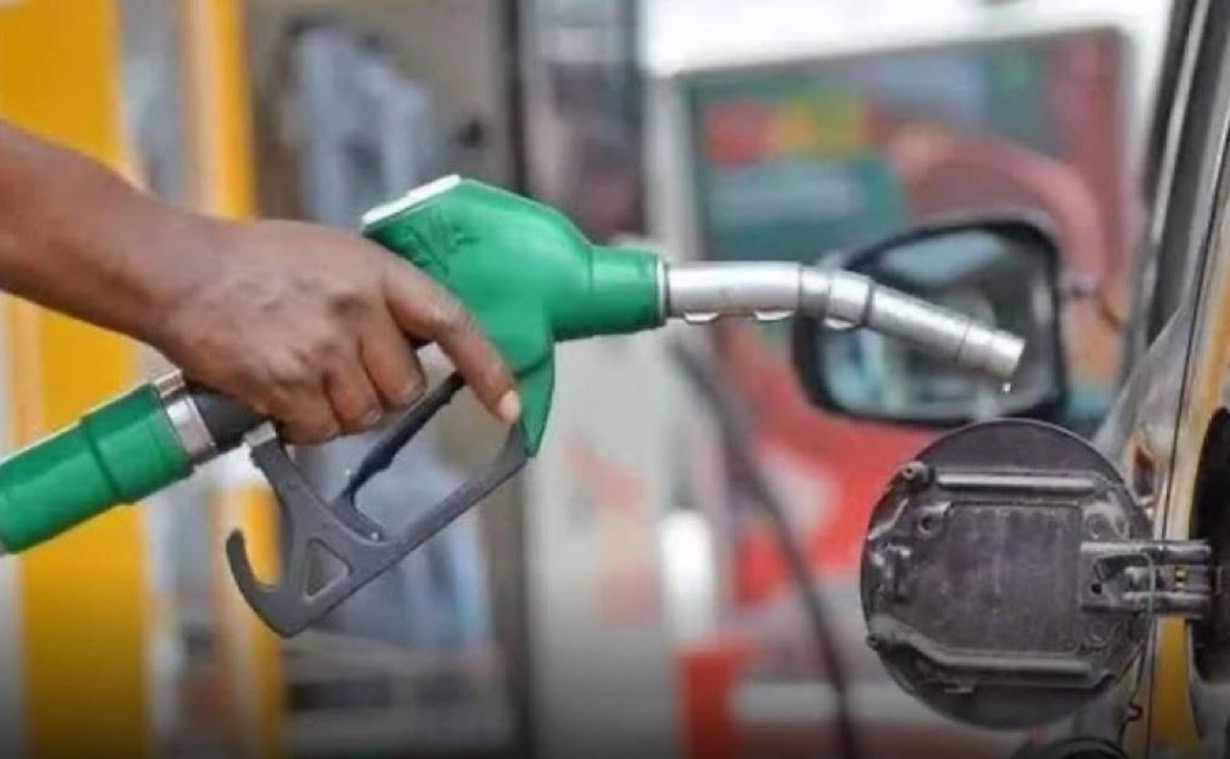A New Challenge for Nigeria’s Fuel Market
Nigerians may soon face another hike in fuel prices as Dangote Refinery announced the temporary suspension of petroleum product sales in Naira. The refinery, which has been a game-changer in Nigeria’s downstream oil sector, cited a mismatch between its sales proceeds and crude oil purchase obligations as the reason for the decision. This development has sparked anxiety in the country’s fuel market, with fears of a potential increase in the price of Premium Motor Spirit (PMS), commonly known as petrol.

Dangote’s Announcement: A Strategic Pause
In a statement released on its official X account on Wednesday, March 19, 2025, Dangote Refinery explained that the temporary halt in Naira-denominated sales was necessary to align its sales currency with its crude procurement currency, which is currently in U.S. dollars.
“To date, our sales of petroleum products in Naira have exceeded the value of Naira-denominated crude we have received. As a result, we must temporarily adjust our sales currency to align with our crude procurement currency,” the statement read.
The refinery also dismissed reports of ticketing fraud, describing them as “malicious falsehoods.” It assured customers of its commitment to serving the Nigerian market efficiently and sustainably, promising to resume Naira sales once it receives an allocation of Naira-denominated crude cargoes from the Nigerian National Petroleum Company Limited (NNPCL).
The Implications: A Potential Fuel Price Hike
The suspension of Naira-denominated sales by Dangote Refinery could have significant implications for Nigeria’s downstream oil sector. Since the refinery began operations, it has played a crucial role in stabilizing fuel prices by selling petroleum products to Nigerian marketers in Naira. This arrangement was made possible through the Naira-for-crude deal with NNPCL, which allowed Dangote Refinery to purchase crude oil in Naira and sell refined products in the same currency.
However, with the temporary halt in Naira sales, marketers may now have to purchase fuel in U.S. dollars, leading to higher costs. This could result in a fresh hike in the retail price of petrol, which currently stands at around N860 per litre. The development has raised concerns about the potential impact on consumers, who are already grappling with high inflation and economic challenges.
The Naira-for-Crude Deal: A Rocky Road
The Naira-for-crude deal between Dangote Refinery and NNPCL, which began in October 2024, was hailed as a landmark agreement that would reduce Nigeria’s dependence on imported fuel and stabilize the local currency. Under the deal, Dangote Refinery purchased crude oil in Naira and sold refined products to Nigerian marketers in the same currency, creating a seamless supply chain.
However, recent developments suggest that the deal may have hit a snag. Dangote Refinery’s decision to suspend Naira sales indicates a possible breakdown in negotiations with NNPCL over the allocation of Naira-denominated crude cargoes. This has left many wondering whether the federal government and NNPCL can resolve the issue and restore the deal.
The Broader Context: Nigeria’s Fuel Market Dynamics
The suspension of Naira sales by Dangote Refinery comes at a critical time for Nigeria’s fuel market. Over the past few months, the refinery’s operations have led to a price war with NNPCL, resulting in a significant drop in the retail price of petrol. This has been a welcome relief for consumers, who have long struggled with high fuel prices.
However, the latest development threatens to reverse these gains. If Dangote Refinery is unable to resume Naira sales soon, marketers may be forced to source fuel from other suppliers, potentially leading to higher prices and supply disruptions. This could also put additional pressure on the Naira, which has been struggling against the U.S. dollar in recent months.
The Way Forward: Resolving the Impasse
To avert a potential fuel price hike, stakeholders must work quickly to resolve the issues surrounding the Naira-for-crude deal. NNPCL and Dangote Refinery need to renegotiate the terms of the agreement to ensure a steady supply of Naira-denominated crude cargoes. This would allow the refinery to resume Naira sales and stabilize the fuel market.
The federal government also has a role to play in facilitating dialogue between the two parties and addressing any underlying issues that may have led to the suspension of Naira sales. A swift resolution is essential to prevent further disruptions in the fuel supply chain and protect consumers from additional financial strain.
A Critical Moment for Nigeria’s Fuel Market
The temporary suspension of Naira-denominated sales by Dangote Refinery marks a critical moment for Nigeria’s fuel market. While the refinery has been a beacon of hope for a more stable and affordable fuel supply, this latest development underscores the challenges of navigating the complex dynamics of the downstream oil sector.
Read also: Why Are Nigerian Retailers Still Importing Fuel Despite Dangote Refinery? The Inside Scoop
As stakeholders work to resolve the impasse, the hope is that a solution can be found quickly to prevent a fresh hike in fuel prices and ensure the continued availability of affordable petroleum products for Nigerians. For now, the nation watches and waits, hoping for a positive outcome.
















Got a Questions?
Find us on Socials or Contact us and we’ll get back to you as soon as possible.